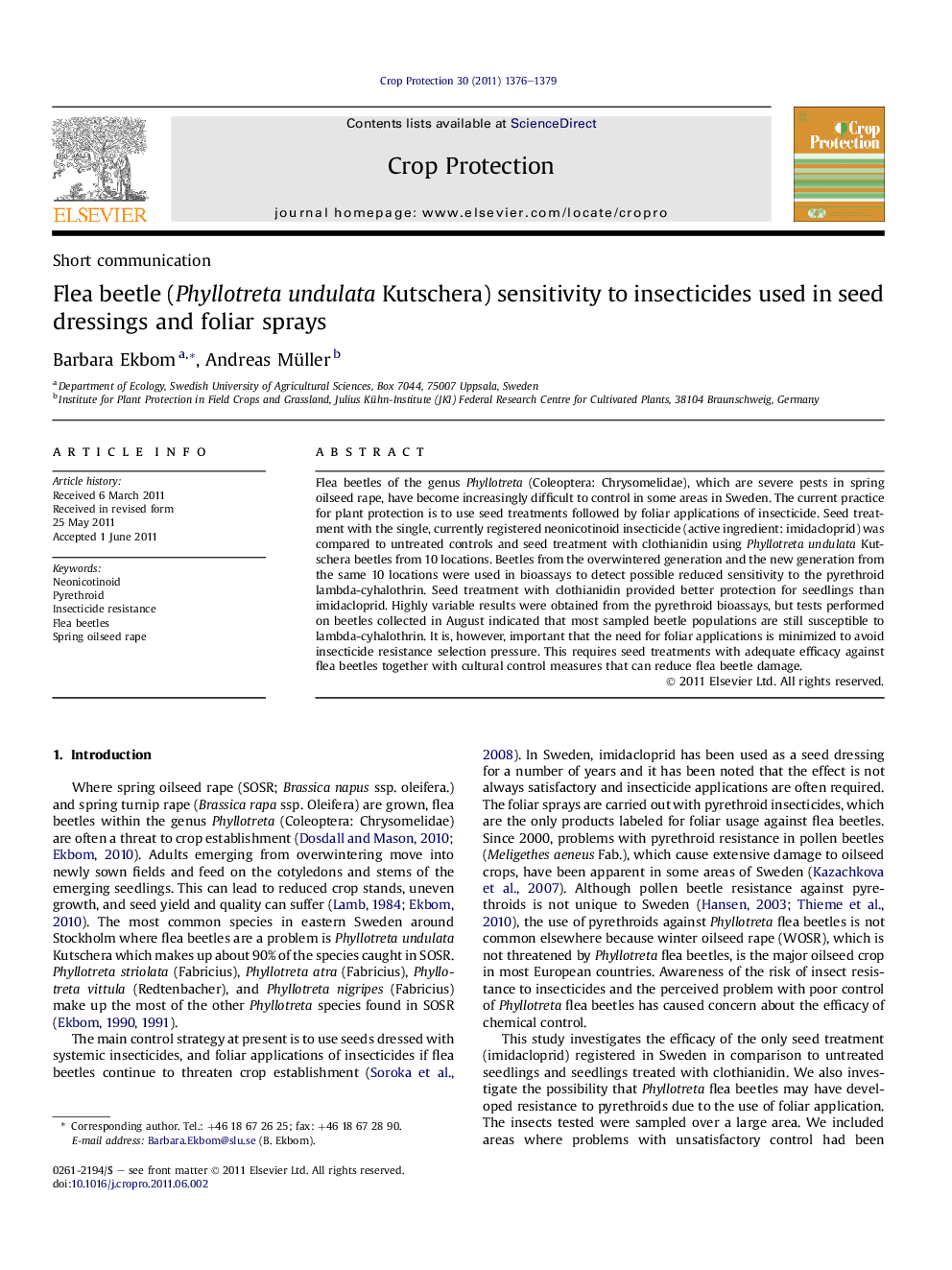| Article ID | Journal | Published Year | Pages | File Type |
|---|---|---|---|---|
| 4506580 | Crop Protection | 2011 | 4 Pages |
Flea beetles of the genus Phyllotreta (Coleoptera: Chrysomelidae), which are severe pests in spring oilseed rape, have become increasingly difficult to control in some areas in Sweden. The current practice for plant protection is to use seed treatments followed by foliar applications of insecticide. Seed treatment with the single, currently registered neonicotinoid insecticide (active ingredient: imidacloprid) was compared to untreated controls and seed treatment with clothianidin using Phyllotreta undulata Kutschera beetles from 10 locations. Beetles from the overwintered generation and the new generation from the same 10 locations were used in bioassays to detect possible reduced sensitivity to the pyrethroid lambda-cyhalothrin. Seed treatment with clothianidin provided better protection for seedlings than imidacloprid. Highly variable results were obtained from the pyrethroid bioassays, but tests performed on beetles collected in August indicated that most sampled beetle populations are still susceptible to lambda-cyhalothrin. It is, however, important that the need for foliar applications is minimized to avoid insecticide resistance selection pressure. This requires seed treatments with adequate efficacy against flea beetles together with cultural control measures that can reduce flea beetle damage.
► The currently used seed treatment does not protect plants at an acceptable level. ► The efficacy of pyrethroids against the flea beetles is not always reliable. ► There may be a risk for resistance to neonicotinoids using seed treatment. ► Resistance to pyrethroids may be developing in some flea beetle populations.
